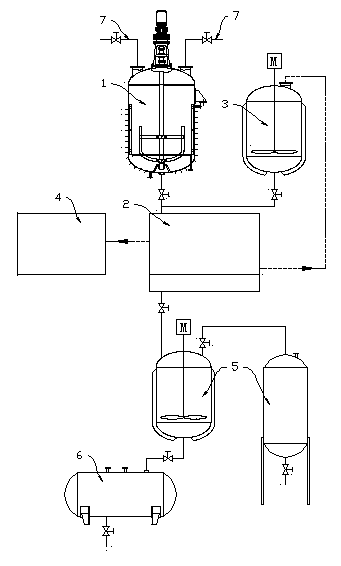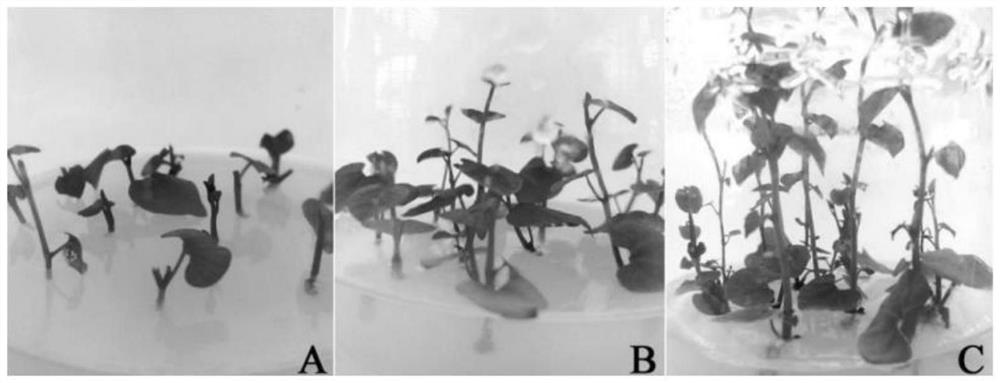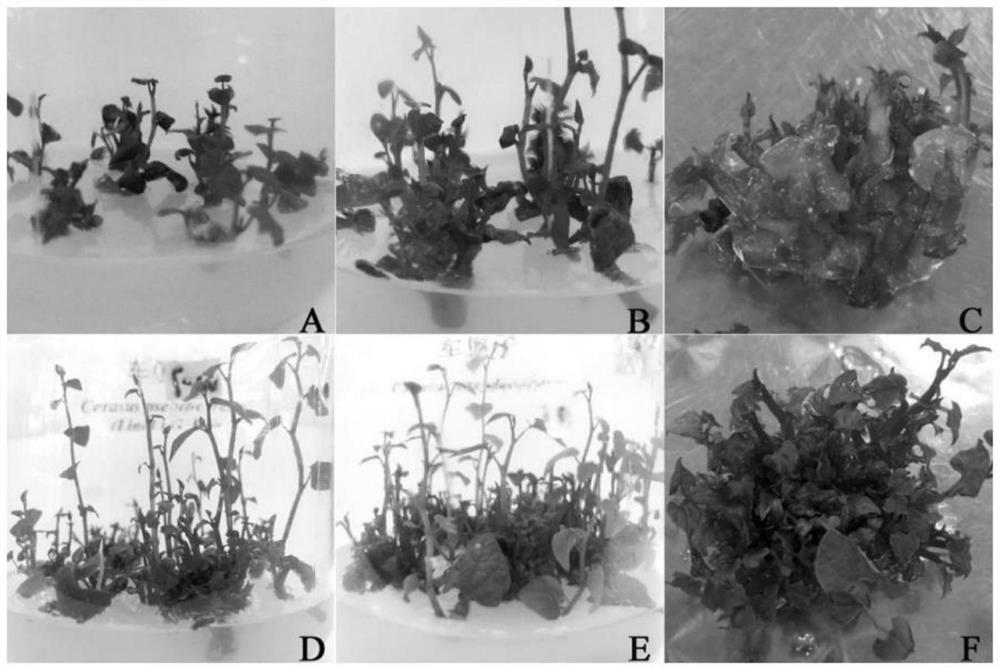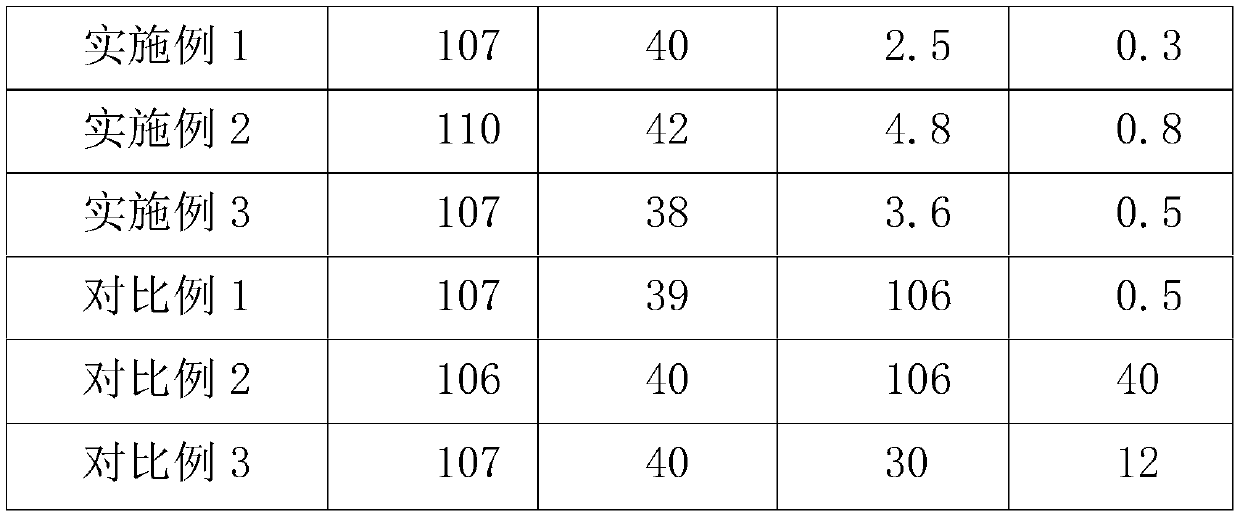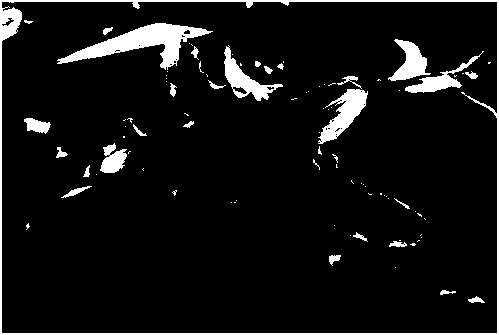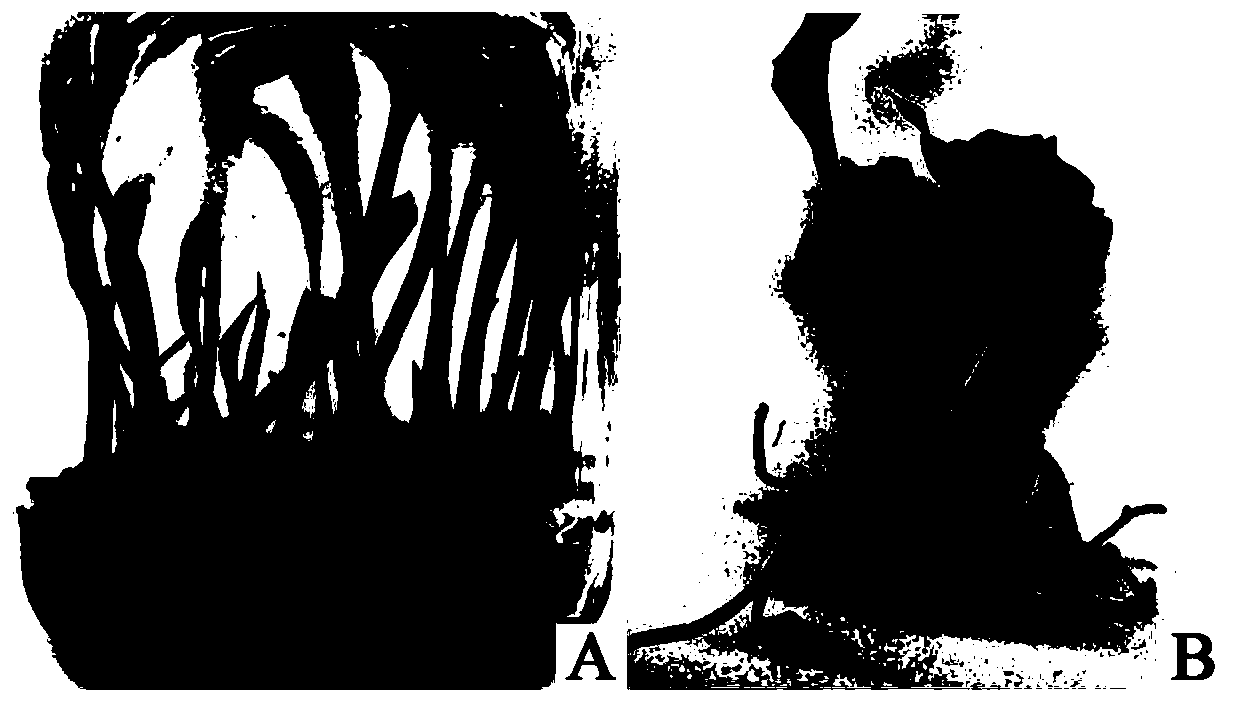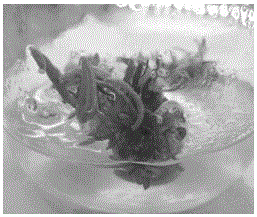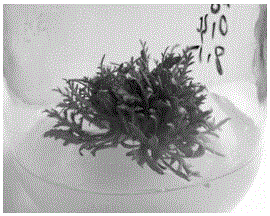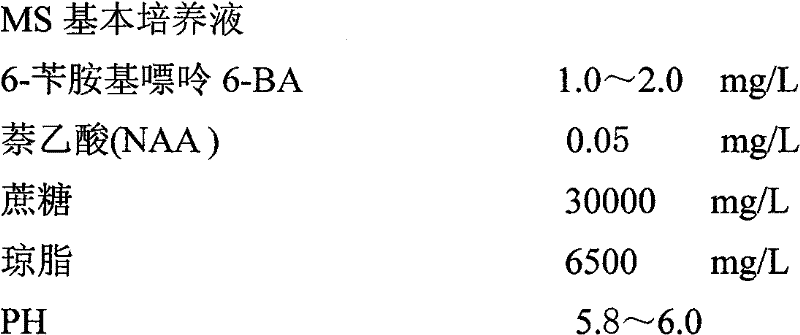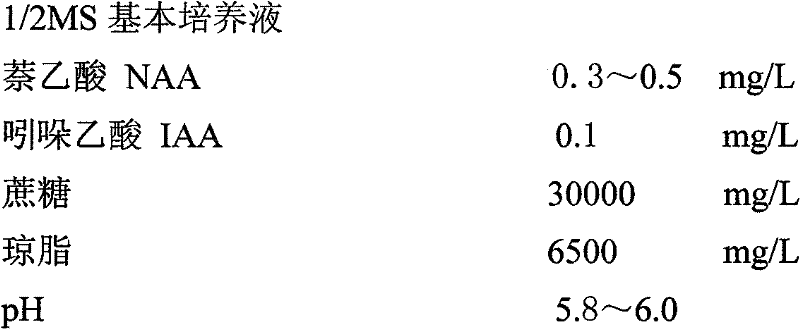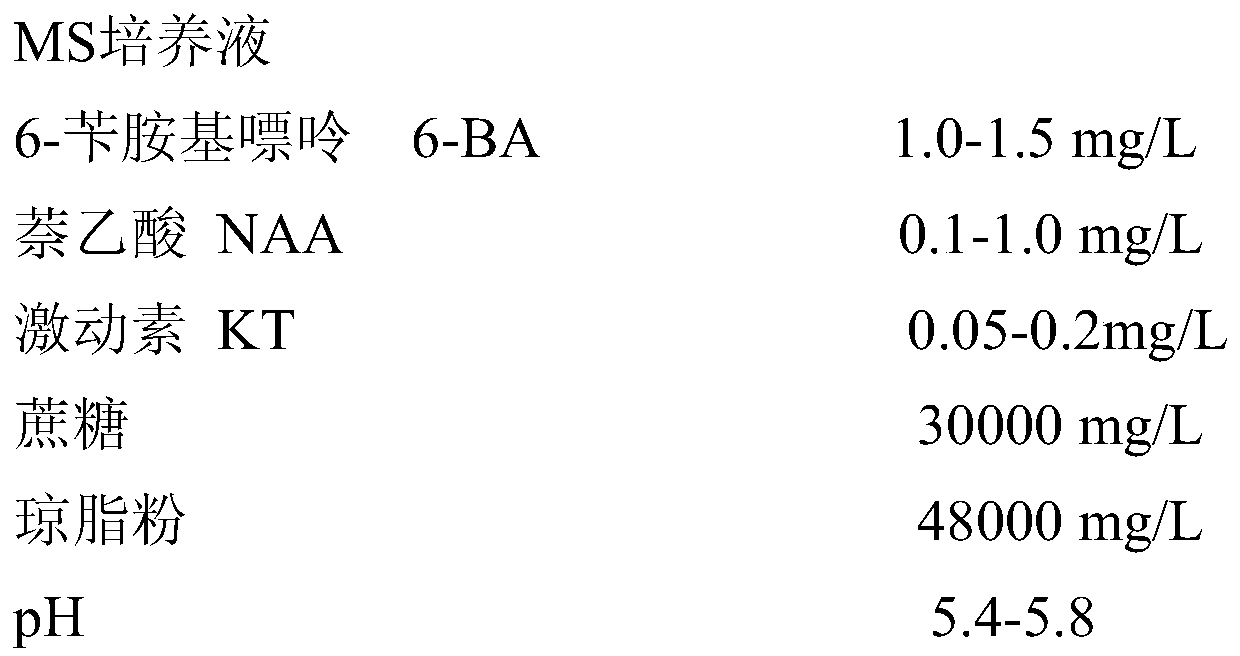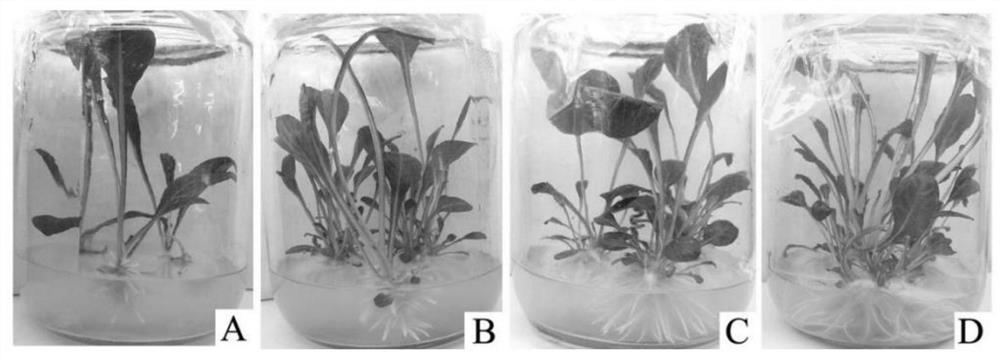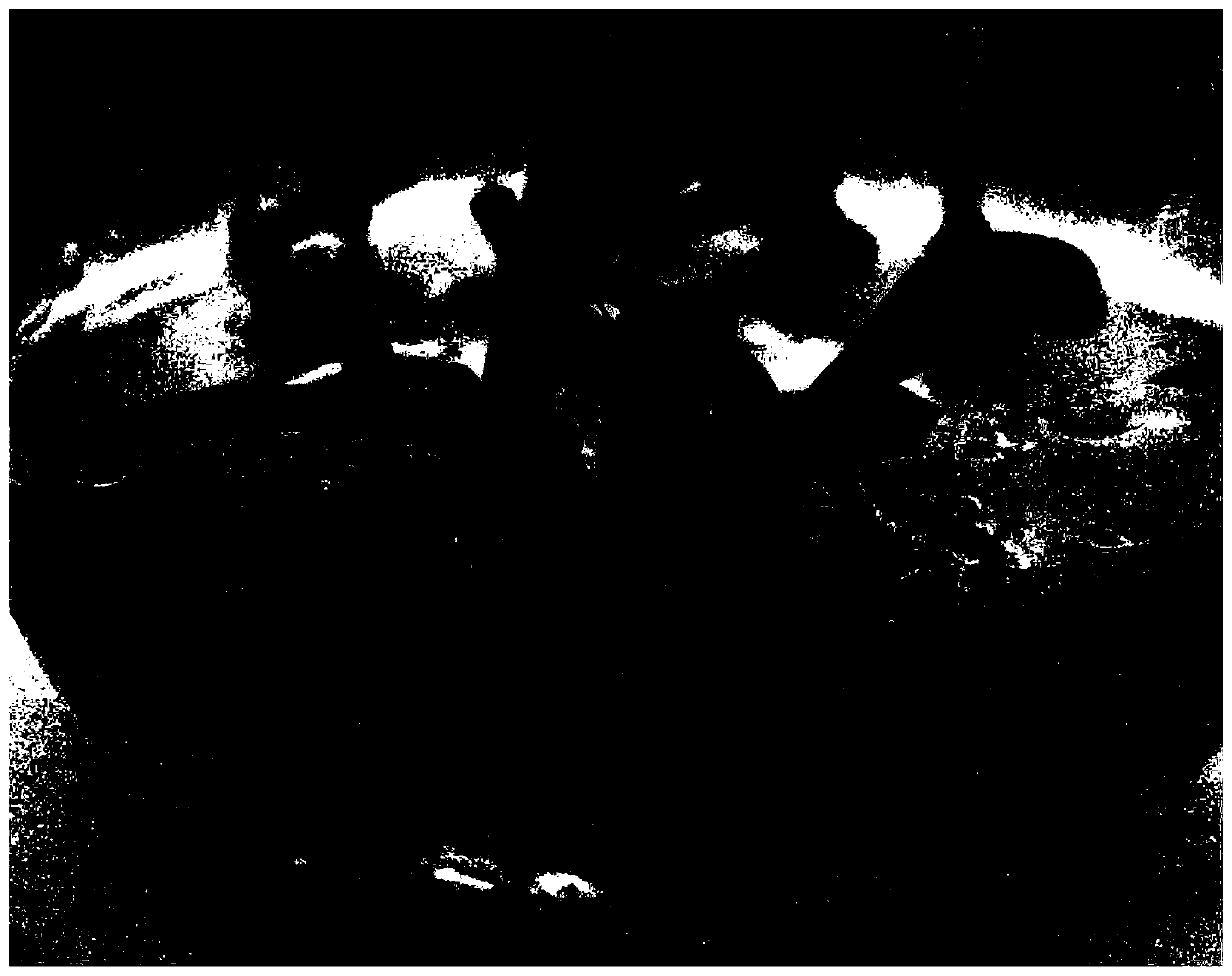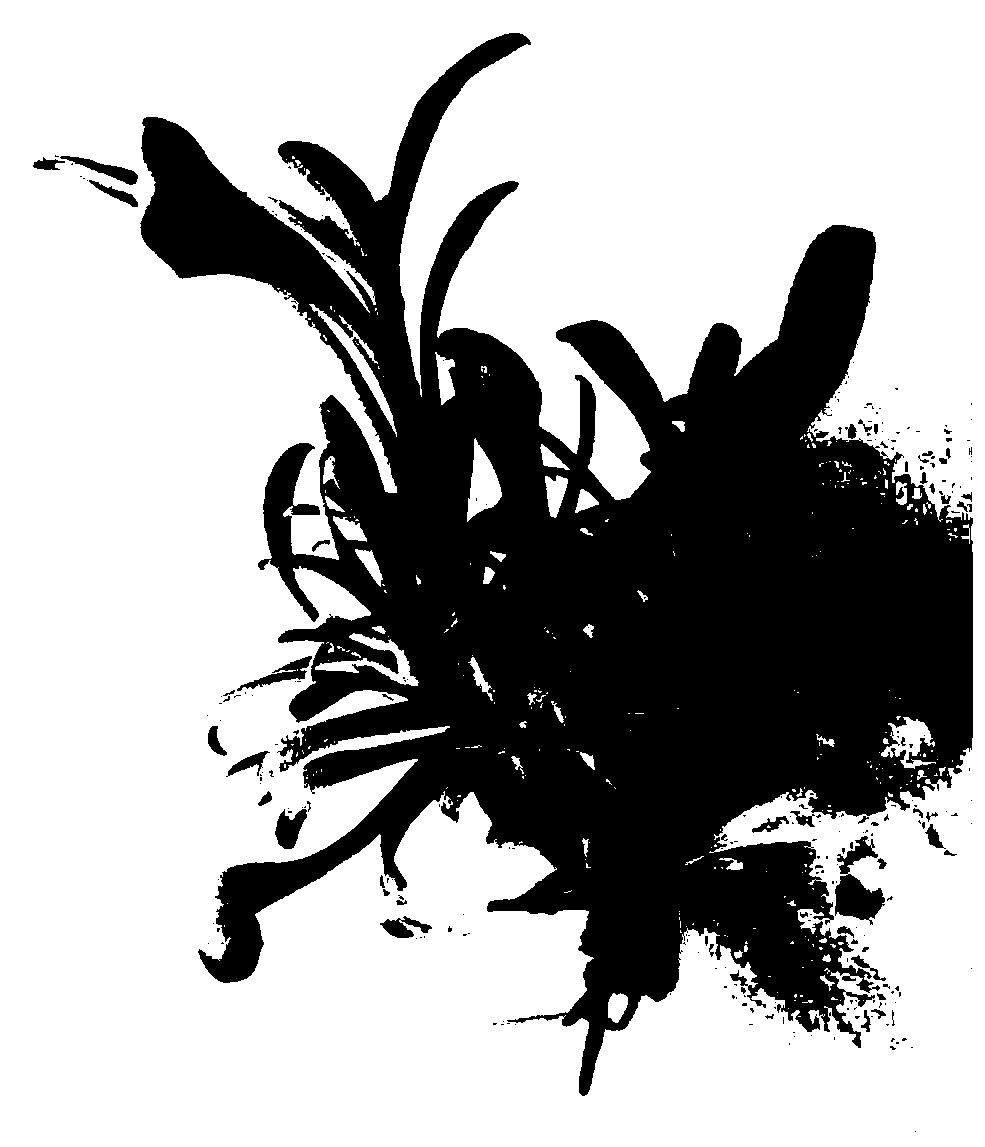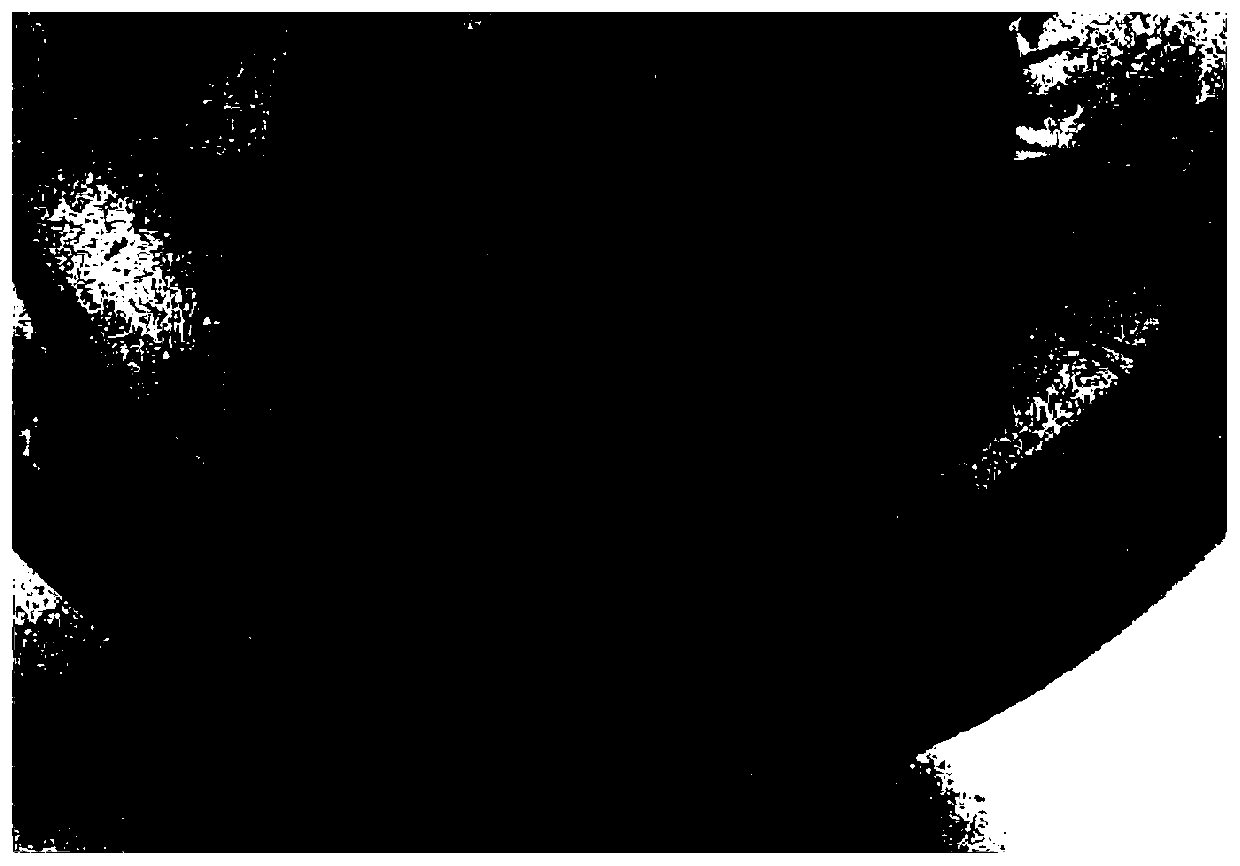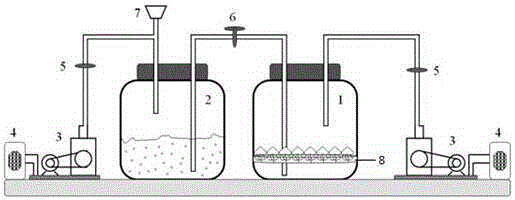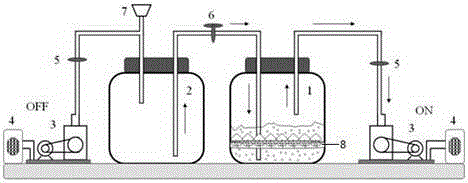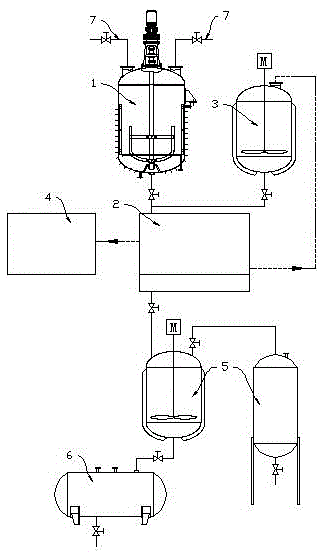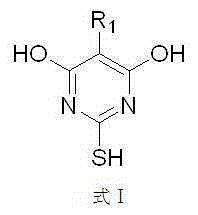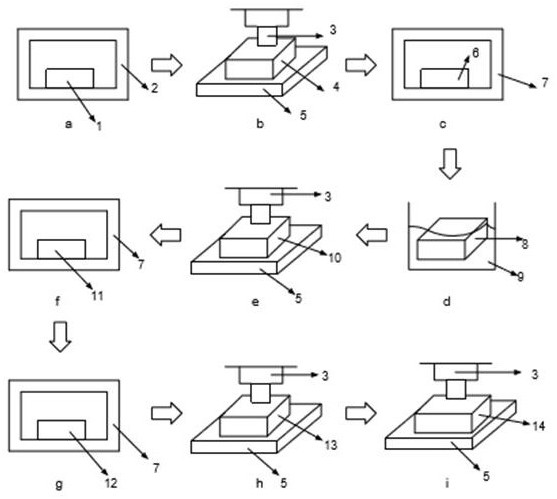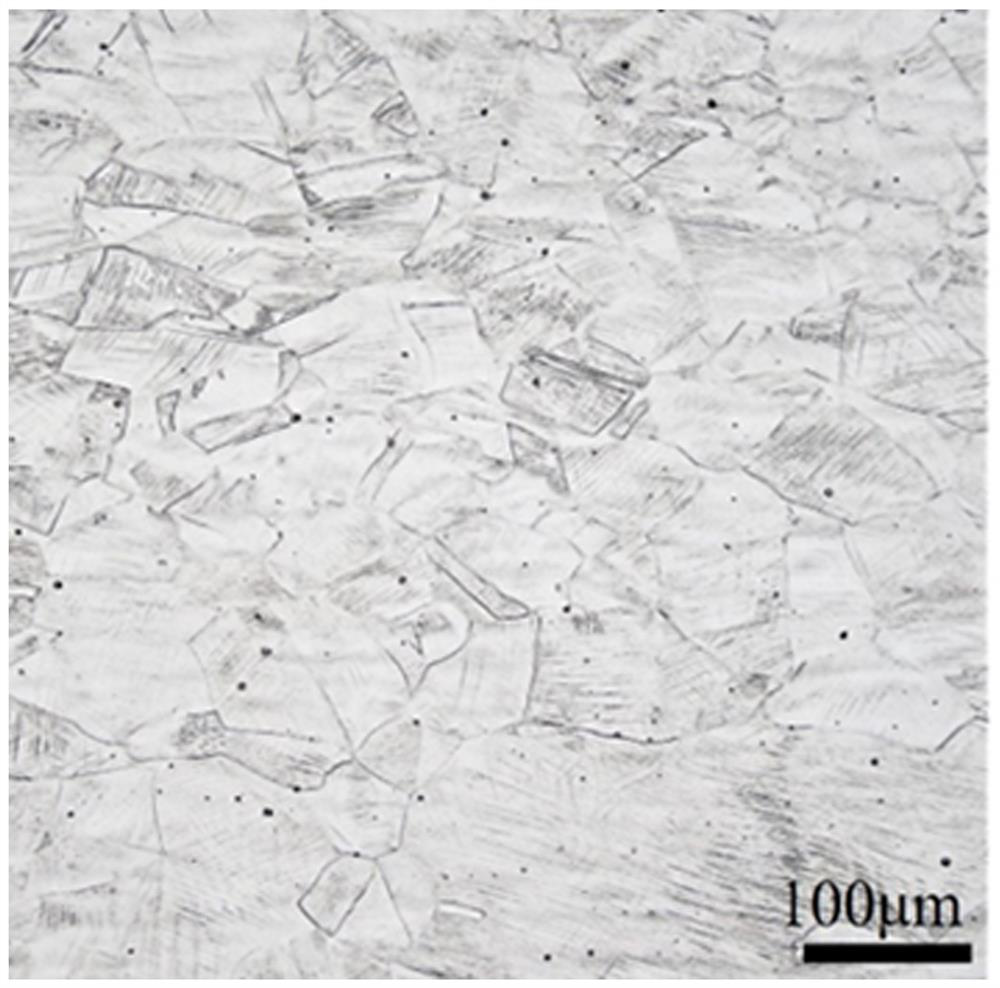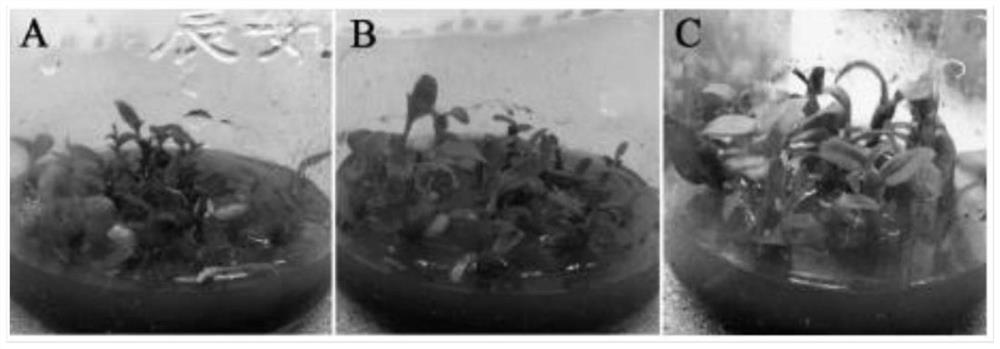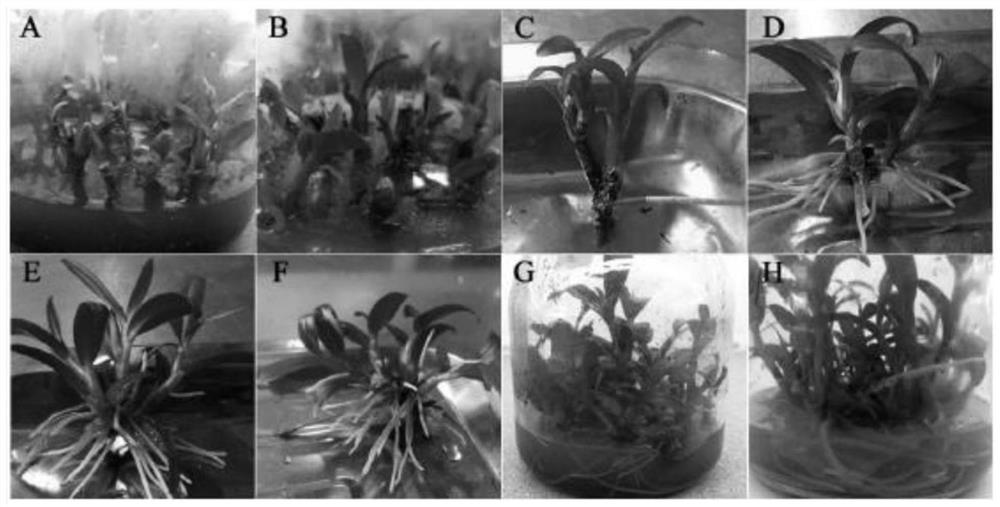Patents
Literature
Hiro is an intelligent assistant for R&D personnel, combined with Patent DNA, to facilitate innovative research.
32results about How to "Easy to factory operation" patented technology
Efficacy Topic
Property
Owner
Technical Advancement
Application Domain
Technology Topic
Technology Field Word
Patent Country/Region
Patent Type
Patent Status
Application Year
Inventor
Anti-mosquito water-proof airpermeability wear-resisting resin used for synthesizing leather and preparation method thereof
The invention discloses an anti-mosquito water-proof airpermeability wear-resisting resin used for synthesizing leather, which comprises the following components in parts by weight: 30-40 parts of polyether polyurethane resin, 5-10 parts of polyester polyurethane resin, 50-55 parts of water, 4-5 parts of silicon dioxide extinction powder, 2-4 parts of anti-mosquito assistant, 2-4 parts of oxidized polyethlene wax, 1-3 parts of modified amino siloxane, 1-3 parts of fluorocarbon surfactant, 1-2 parts of organosilicon flatting agent and 0.5-1 part of fluorine drying agent. The invention also discloses a preparation method of the anti-mosquito water-proof airpermeability wear-resisting resin; the anti-mosquito water-proof airpermeability wear-resisting resin for the synthetic leather has gloss, softness and smooth handfeel, waterproof property and airpermeability, wear resistance and scrape resistance, has high-efficiency and rapid striking and killing effect and good repellent effect on mosquitoes, flies, fleas, cooties and moths and the like.
Owner:JIANGSU BAOZE POLYMER MATERIAL
Zinc sulfate impurity removal method
The invention relates to an impurity removal method, and in particular relates to a zinc sulfate impurity removal method. The method comprises the following steps: a, detecting cadmium and nickel which are contained in a refined zinc sulfate solution to be treated; b, carrying out preliminary impurity removal, namely heating the refined zinc sulfate solution to reach 80 DEG C to 90 DEG C, adding zinc powder which is 8 to 12 times greater than the content of the nickel as well as antimony trioxide and copper sulfate to ensure that the concentrations of the antimony trioxide and the copper sulfate in the solution are respectively 1.2mg / L to 1.5mg / L and 40 mg / L to 45mg / L, fully stirring and reacting for 1 to 2 hours; and c, carrying out secondary impurity removal, namely filtering a liquid obtained in the step b, adding the zinc powder which is 2 to 3.5 times greater than the content of the cadmium into filtrate when cooling the filtrate to reach below 50 DEG C, fully stirring and further reacting until reaching a full reaction. The method has the beneficial effects that the reaction is simple and is finished by one step; the impurity removal effect is obvious; in addition, the process is simple and added reagents are low in cost. Thus, the method is easy for factory operation.
Owner:NINGBO ZHENHAI NEW ORIENTAL FINE CHEM CO LTD
Tissue culture method for strawberry transplant seedlings
InactiveCN105961201AOvercome the difficulty of not being able to carry out production on an annual basisSave land resourcesPlant tissue cultureHorticulture methodsFragariaPlant hormone
Strawberry transplanting seedling tissue culture method, the steps include: A, selection of strawberry explants, B, disinfection and sterilization, C, anti-browning culture, D, callus induction, cluster bud generation and proliferation culture, E, expansion Propagation and cultivation, F, rooting and cultivation, G, seedling hardening and transplanting. The beneficial effect is that the tissue culture procedure of strawberry seedlings is simple, and callus induction, cluster bud formation and proliferation culture can be carried out simultaneously in the same medium; the tissue culture period is short, the reproduction coefficient is high, and the whole rapid propagation process only needs three kinds of culture The problem of browning, callus, cluster bud generation and proliferation, and rooting can be solved based on the basis; adventitious root induction of test-tube seedlings does not add phytohormones, and the survival rate of hardened seedlings is high and grows rapidly; seedlings can maintain the same genotype, Progeny are not prone to browning, and there is little virus accumulation; the tissue culture method of inhibiting browning is low in cost, short in time, and the seedlings produced are of good quality, high survival rate, and stable properties, which can meet the industrial production of high-quality strawberry seedlings need.
Owner:玉溪市祥馨农业技术开发有限公司
Additive for polyurethane synthetic leather and preparation method thereof
InactiveCN106521984AImprove water resistanceImprove stabilityCoatingsTextiles and paperBetaineHuman health
The invention provides an additive for polyurethane synthetic leather and a preparation method thereof. The additive is prepared from the following raw materials by weight: 25-28 parts of polyester resin, 7-9 parts of terpene resin, 2-3 parts of white carbon black, 1.2-1.5 parts of soap powder, 1.8-2.2 parts of ethylene-bis-stearamide, 0.8-1.3 parts of a silane coupling agent, 0.6-0.7 part of betaine, 1.2 parts of a dispersant, 0.6 part of a fluorine drying agent, and 60-65 parts of water. The additive provided by the invention can be added into synthetic leather to use, is harmless to the environment, also has no harm to human health, and can improve the water resistance and stability of synthetic leather. The finally obtained synthetic leather has the characteristics of antistatic properties, low irritation, sterilization, low toxicity, emulsification dispersion, chemical stability and biodegradability, etc.
Owner:南平慧薇网知识产权营运有限公司
Method for preparing thiobarbituric acid compound
ActiveCN103992279AHigh yieldEasy to factory operationOrganic chemistryAluminium isopropoxideMalonic acid
The invention provides a method for preparing a thiobarbituric acid compound shown as formula I in the specification. In an organic solvent, a malonate diester compound or derivatives thereof, thiourea and aluminum isopropoxide undergo cyclization reaction under certain conditions to obtain the thiobarbituric acid compound (formula I). The method is high in yield, solves the problem of low yield in the prior art, is easy in factory operation, effective and environment-friendly, and is favorable for large-scale production.
Owner:CHONGQING HUABANGSHENGKAI PHARM
Fast asexual propagation method for maca hybrid
InactiveCN104737913AImprove standardizationEasy to factory operationHorticulture methodsPlant tissue cultureF1 generationPlantlet
The invention discloses a fast asexual propagation method for maca hybrid. The method comprises the following steps: inoculating a sterilized maca hybrid explant into a callus inducing medium, generating callus, and the generated callus into a clump seedling generating and breeding medium to cultivate; when clump seedlings are generated and bred to a certain quantity, carrying out subculture multiplication in the breeding medium; when the quantity of the bred seedlings reaches the rooting requirements, transferring healthy main seedlings in the clump seedlings into a rooting medium to cultivate; and when the seedlings are healthy and the roots are thick, carrying out hardening-seedling for 3 days according to a conventional method, and transplanting into a floating plate with disinfection humus and cultivating for 60 days so as to obtain the healthy maca hybrid clonal seedlings. The production technology of the maca hybrid clonal seedlings is optimized and adjusted; after the callus and the clump seedlings are obtained, MS with high NH<4+> and B5 with low NH<4+> are adopted as basic culture mediums for alternative use in enrichment culture; the phenomena that a maca test-tube plantlet is easy to age and yellow are thoroughly solved; the asexual propagation cycle is shortened; the breeding efficiency is improved; and an effective way is provided for breeding of F1 generation of high-quality seedlings of the maca hybrid.
Owner:会泽枢康中草药种植有限公司
Artificial efficient propagation method of aristolochia tuberosa
ActiveCN112167060AProliferate fastSimplify the cultivation procedureClimate change adaptationPlant tissue cultureAxillary budGenotype
The invention discloses an artificial efficient propagation method of aristolochia tuberosa. The method comprises the following steps of inoculating a disinfected and sterilized explant with a bud stem segments of the aristolochia tuberosa into a culture medium A for culture, starting propagation culture under the conditions that the illuminance is 1500-2000lx, the illumination time is 10h / d and the temperature is controlled to be 22 + / -1 DEG C, and obtaining a propagation coefficient of 3.57 after 35 days. A material is shorn into the stem segments containing 2-3 joints, the stem segments areinoculated into a culture medium B to be cultured, a clustered cluster system with base adventitious cluster buds and upper axillary buds growing is formed after 45 days, and the propagation coefficient reaches 10.0 or above. When the height of proliferated cluster buds is 3-4cm, single seedlings are inoculated into the culture medium B to be cultured for 45d to obtain rooted seedlings with strong seedlings and thick roots, and then the rooted seedlings are transplanted. The method is low in cost, short in period and high in test-tube plantlet quality and survival rate, provides technical support for protecting wild resources and breeding high-quality plantlets, and can be used for producing excellent plantlets with consistent genotype backgrounds in a short time.
Owner:YUNNAN UNIV OF TRADITIONAL CHINESE MEDICINE
Zinc sulfate impurity removal method
The invention provides a zinc sulfate impurity removal method. The method comprises the following specific steps: S1, reacting a zinc source with sulfuric acid to generate a crude zinc sulfate solution, filtering, preliminarily removing impurities, and detecting the contents of lead and nickel; s2, heating the zinc sulfate solution, adding a mixed solution of sodium dimethyl dithiocarbamate and thiourea, stirring and filtering to obtain a refined zinc sulfate solution, wherein the mixed solution of sodium dimethyl dithiocarbamate and thiourea is specifically prepared from sodium dimethyl dithiocarbamate, thiourea and water in a weight ratio of 1: (1-3): (2-5); wherein the addition amount of the mixed solution is 10-15 times of the nickel content. By utilizing the synergistic effect of sodium dimethyl dithiocarbamate and thiourea, lead and nickel in zinc sulfate can be removed at the same time, the process is simple, the cost of added reagents is low, industrial operation is easy, and the practical value is high.
Owner:江西省愚人纳米科技有限公司
Rapid reproduction method of schlumbergera seedlings
InactiveCN101940160AOvercome the difficulty of not being able to carry out production on an annual basisSave land resourcesPlant tissue cultureHorticulture methodsSchlumbergeraCallus formation
The invention provides a rapid reproduction method of schlumbergera seedlings. The method comprises the following steps: inoculating a selected, disinfected and sterilized schlumbergera explant onto a culture medium for induction and carrying out synchronous induction and proliferation culture until the explant sprouts and differentiates out a bud; sub-culturing until being proliferated to 3-4 folds, and then transferring to a rooting medium for rooting culture until 3-5 fine roots are grown at the base of a plant; conventionally hardening and then transplanting to a mixed substrate of humus soil, red soil and pearlite; and watering and fertilizing conventionally for growing to obtain the schlumbergera seedlings. In the method, key links in the whole production technical flow of the schlumbergera seedlings are optimized and integrated, the culture medium for induction is blended and bud induction and proliferation culture are carried out synchronously, thus simplifying tissue culture procedure and shortening breeding cycle; and only by adopting two types of the culture media, the bud can be directly formed without callus formation, thus reducing probability of variation occurred on an adventitious bud, effectively controlling generation of a variant strain, being capable of fixing and maintaining fine variety of the schlumbergera seedlings rapidly, improving seedling quality and solving the problems of complicated parental source and unstable quality of the seedlings produced by the conventional breeding system.
Owner:FLOWER RES INST OF YUNNAN ACAD OF AGRI SCI
Tissue culture propagation method for helleborus thibetanus
ActiveCN113728921ASolve the problem of low reproduction coefficientSolve the problem of rootingGrowth substratesCulture mediaHelleborus thibetanusSeedling
The invention provides a tissue culture propagation method for helleborus thibetanus. The tissue culture propagation method comprises the following steps of (1), obtaining and treating an explant; (2), carrying out adventitious bud induction culture; (3), carrying out adventitious bud subculture multiplication culture; (4), rooting culture; and (5), hardening seedlings and transplanting to obtain helleborus thibetanus seedlings. According to the method, hormone and a culture environment are comprehensively adjusted, so that the proliferation multiple of the adventitious buds of the helleborus thibetanus reaches 3.5 or above, the rooting rate reaches 90% or above, and the problems that the helleborus thibetanus is low in propagation coefficient, difficult to root and long in production period are solved; and besides, by keeping the excellent characters of the excellent strains, seedlings with stable excellent characters can be produced, standardization and factory operation are easy, and the excellent seedlings with the unified standard are provided for the market.
Owner:FLOWER RES INST OF YUNNAN ACAD OF AGRI SCI +1
A kind of breeding method of pollen-free lily variety
ActiveCN106417000BImprove breeding efficiencyGood ornamental propertiesFlowers cultivationSeed and root treatmentPollenLilium
The invention relates to a pollen-free lily variety breeding method and belongs to the technical field of breeding of new plant varieties. Lily is a main commercial flower in the world, is widely planted around China and occupies huge market shares. However, due to the fact that lily pollen easily stains clothes, the clothes stained with pollen is inconvenient to clean, the lily sold in the market generally undergoes artificial castration processing, the process is complicated and a large number of manpower and material resources is wasted, a bred pollen-free lily is always the key direction of lily breeding, and meanwhile the pollen-free lily having excellent ornamental characteristics also has a huge market prospect. The method creatively utilizes special lily crossbreeding combination, combines with in-bottle sowing, lily tissue culture and breeding, cold storage and vernalization of small lily bulblets, lily seed ball cultivation, pollen-free lily screening and propagation expanding technologies, a breeding period of the pollen-free lily is creatively shortened, and the new pollen-free lily variety having excellent ornamental characteristics is bred.
Owner:FLOWER RES INST OF YUNNAN ACAD OF AGRI SCI
New method for artificial rapid propagation of cremastra appendiculata (D.Don) Makino
ActiveCN110463608AOvercome the difficulty of not being able to carry out production on an annual basisSave land resourcesHorticulture methodsPlant tissue cultureBudRice grain
The invention discloses a new method for artificial rapid propagation of cremastra appendiculata (D.Don) Makino.The method comprises the following steps: (1) obtaining an explant; (2) firstly washingsoil on the surface of pseudobulb in step (1) with tap water, then soaking with a washing powder solution, then rinsing with running water, then treating with an ethanol solution, and rinsing after disinfection; (3) obtaining sterile seedlings; (4) transferring young shoots grown from buds cultured in step (3) to a medium A in step (3) for enrichment culture, cutting off seedlings with callus, andcontinuing to transfer to a medium B for culture; (5) inoculating a medium C with single seedlings with rice grain-sized pseudobulb after subculture in step (4) for culture; (6) exercising the seedlings and transplanting. The method disclosed by the invention has the advantages that the in-vitro rapid propagation of the cremastra appendiculata (D.Don) Makino is optimized and adjusted; the processof artificial rapid propagation is simplified; the propagation efficiency is greatly improved; the cost is low and the time is short; not only is the survival rate of tube seedlings through seedlingexercising improved, but the nursery cycle is also greatly shortened.
Owner:YUNNAN UNIV OF TRADITIONAL CHINESE MEDICINE
A New Method of Artificial Rapid Propagation of Arrowhead Mushroom
ActiveCN110463608BOvercome the difficulty of not being able to carry out production on an annual basisSave land resourcesPlant tissue cultureHorticulture methodsBudRice grain
The present invention discloses a new method for artificial fast propagation of Shanci mushroom, comprising the following steps: (1) obtaining explants; (2) washing the surface soil of the pseudobulbs in step 1 with tap water, and then soaking them with washing powder solution Rinse with running water, then process with ethanol solution, and rinse after disinfection; (3) obtain sterile seedlings; (4) take the sprouts grown from the bud spots in step 3 and transfer them to the A medium in step 3 Proliferation culture is carried out inside, and the seedlings carrying callus are cut off, and continue to be transferred into B medium to cultivate; (5) the single seedling with rice grain size pseudobulb after subculture in step 4 is inoculated in C medium (6) seedling refining and transplanting. The invention optimizes and adjusts the rapid propagation in vitro of S. chinensis, simplifies the artificial rapid propagation process, greatly improves the propagation efficiency, has low cost and short time, not only improves the survival rate of the test-tube seedlings, but also greatly shortens the seedling raising period. .
Owner:YUNNAN UNIV OF TRADITIONAL CHINESE MEDICINE
Asexual Rapid Propagation Method of Maca Hybrid
InactiveCN104737913BImprove standardizationEasy to factory operationHorticulture methodsPlant tissue cultureF1 generationPlantlet
Owner:会泽枢康中草药种植有限公司
Tissue cultivaition method of vetiveria zizanioides transplant
InactiveCN102197786BOvercome the difficulty of not being able to carry out production on an annual basisSave land resourcesHorticulture methodsPlant tissue cultureChrysopogon zizanioidesPlantlet
Owner:FLOWER RES INST OF YUNNAN ACAD OF AGRI SCI
A kind of high-efficiency artificial seedling raising method of Passiflora high-quality hybrid
ActiveCN110521598BOvercome the difficulty of not being able to carry out production on an annual basisSave land resourcesHorticulture methodsPlant tissue culturePassiflora serratifoliaPlantlet
The invention provides a high-efficiency artificial seedling-raising method of high-quality passionflower hybrids, which comprises the steps of: inoculating the sterilized leaf explants in a culture medium, inducing callus, forming clustered buds and proliferating , rooting induction, seedling hardening and transplanting. The present invention optimizes and adjusts the production process of hybrid seedlings of passionflower, synchronously carries out callus growth, cluster bud generation and cluster bud proliferation, simplifies the tissue culture process, and carries out three culture processes in one culture medium at the same time , greatly improving the reproductive efficiency. In addition, the invention solves the phenomena such as plant yellowing and leaf defoliation that are easy to occur in the tissue culture process of Passiflora plants, and has low cost, short cycle, high quality and high survival rate.
Owner:YUNNAN UNIV OF TRADITIONAL CHINESE MEDICINE
Artificial efficient propagation method for primula denticulata
InactiveCN111955348AIncrease productivityShort training periodHorticulture methodsPlant tissue cultureBudSeedling
The invention provides an artificial efficient propagation method for primula denticulate. The method comprises the following steps: a culture medium A is inoculated with leaf explants of primula denticulate after sterilization treatment for culture, and callus induction and cluster bud generation culture are carried out under the conditions that the illuminance is 1800-2300 lx, illumination lastsfor 8 h / d and temperature is controlled at 20 + / - 1 DEG C; after 30 d, induced cluster buds are transferred in a fresh culture medium A, and after 30 d, the propagation coefficient of adventitious buds is up to about 20.00. When the proliferated cluster buds are 5-8 cm high, a culture medium B is inoculated with single seedlings for culture, strong rooting seedlings with thick roots are obtainedaft er 25-30 d, and then, the rooting seedlings are transplanted. The method is low in cost, short in cycle and high in quality and survival rate of test-tube plantlets, provides technical support forprotecting wild resources and high-quality seedling propagation, and can produce excellent seedlings with consistent genotype background in a short time.
Owner:云南华农农业有限公司
Rapid reproduction method of schlumbergera seedlings
InactiveCN101940160BOvercome the difficulty of not being able to carry out production on an annual basisSave land resourcesHorticulture methodsPlant tissue cultureSchlumbergeraCallus formation
The invention provides a rapid reproduction method of schlumbergera seedlings. The method comprises the following steps: inoculating a selected, disinfected and sterilized schlumbergera explant onto a culture medium for induction and carrying out synchronous induction and proliferation culture until the explant sprouts and differentiates out a bud; sub-culturing until being proliferated to 3-4 folds, and then transferring to a rooting medium for rooting culture until 3-5 fine roots are grown at the base of a plant; conventionally hardening and then transplanting to a mixed substrate of humus soil, red soil and pearlite; and watering and fertilizing conventionally for growing to obtain the schlumbergera seedlings. In the method, key links in the whole production technical flow of the schlumbergera seedlings are optimized and integrated, the culture medium for induction is blended and bud induction and proliferation culture are carried out synchronously, thus simplifying tissue culture procedure and shortening breeding cycle; and only by adopting two types of the culture media, the bud can be directly formed without callus formation, thus reducing probability of variation occurred on an adventitious bud, effectively controlling generation of a variant strain, being capable of fixing and maintaining fine variety of the schlumbergera seedlings rapidly, improving seedling quality and solving the problems of complicated parental source and unstable quality of the seedlings produced by the conventional breeding system.
Owner:FLOWER RES INST OF YUNNAN ACAD OF AGRI SCI
Zinc sulfate impurity removal method
The invention relates to an impurity removal method, and in particular relates to a zinc sulfate impurity removal method. The method comprises the following steps: a, detecting cadmium and nickel which are contained in a refined zinc sulfate solution to be treated; b, carrying out preliminary impurity removal, namely heating the refined zinc sulfate solution to reach 80 DEG C to 90 DEG C, adding zinc powder which is 8 to 12 times greater than the content of the nickel as well as antimony trioxide and copper sulfate to ensure that the concentrations of the antimony trioxide and the copper sulfate in the solution are respectively 1.2mg / L to 1.5mg / L and 40 mg / L to 45mg / L, fully stirring and reacting for 1 to 2 hours; and c, carrying out secondary impurity removal, namely filtering a liquid obtained in the step b, adding the zinc powder which is 2 to 3.5 times greater than the content of the cadmium into filtrate when cooling the filtrate to reach below 50 DEG C, fully stirring and further reacting until reaching a full reaction. The method has the beneficial effects that the reaction is simple and is finished by one step; the impurity removal effect is obvious; in addition, the process is simple and added reagents are low in cost. Thus, the method is easy for factory operation.
Owner:NINGBO ZHENHAI NEW ORIENTAL FINE CHEM CO LTD
A kind of zinc sulfate impurity removal method
The invention provides a zinc sulfate impurity removal method. The specific steps are: S1. Zinc source reacts with sulfuric acid to generate a crude zinc sulfate solution, after filtration, initially removes impurities, detects the content of lead and nickel; S2. heats up the zinc sulfate solution, adds a mixed solution of sodium thiocarbamate and thiourea, and stirs Filter to obtain refined zinc sulfate solution. The mixed solution of sodium thiourea and thiourea is specifically, by weight, sodium thiourea: thiourea: the ratio of water is 1: 1 ~ 3: 2 ~ 5; A mixed solution of urea. The invention utilizes the synergistic effect of sodium thiocarbamate and thiourea to simultaneously remove lead and nickel in zinc sulfate, has simple process, low cost of added reagents, is easy to operate in a factory, and has high practical value.
Owner:江西省愚人纳米科技有限公司
Dipixiao's propagation method
ActiveCN104920218BOvercome the difficulty of not being able to carry out production on an annual basisSave land resourcesHorticulture methodsPlant tissue cultureVitrificationPararuellia delavayana
Owner:YUNNAN UNIV OF TRADITIONAL CHINESE MEDICINE
Artificial efficient propagation method for primula denticulata
PendingCN112293251AOvercome the difficulty of not being able to carry out production on an annual basisIncrease productivityHorticulture methodsPlant tissue culturePrimula denticulataGenotype
The invention discloses an artificial efficient propagation method for primula denticulata. The method comprises the following steps of inoculating disinfected and sterilized primula denticulata leafexplants into a culture medium A for culture, carrying out callus induction and clump bud occurrence culture under the conditions that the illuminance is 1800-2300lx, the illumination time is 8h / d andthe temperature is controlled to be 20+ / -1 DEG C, transferring induced clump buds into a fresh culture medium A for culturing after 30 days, and enabling the adventitious bud propagation coefficientto reach about 20.00 after 30 days; and when the height of the proliferated clump buds is 5-8 cm, inoculating single seedlings into a culture medium B, culturing for 25-30 days to obtain rooting seedlings with strong seedlings and thick roots, and then transplanting the rooting seedlings. The method is low in cost, short in period and high in test-tube plantlet quality and survival rate, providestechnical support for protecting wild resources and breeding high-quality plantlets, and can be used for producing excellent plantlets with consistent genotype backgrounds in a short time.
Owner:YUNNAN UNIV OF TRADITIONAL CHINESE MEDICINE
Artificial efficient propagation method of swertia nervosa (G.Don)Wall.
ActiveCN110506629AOvercome the difficulty of not being able to carry out production on an annual basisSave land resourcesPlant tissue cultureHorticulture methodsShootBiological materials
The invention discloses an artificial efficient propagation method of swertia nervosa (G.Don)Wall.. According to the method, in the same culture medium, callus induction and basal stem multiple shootgeneration can be conducted simultaneously, basal stem multiple shoot generation and multiplication culture can also be conducted simultaneously, and thus the culture procedure is simplified into three steps; in the whole rapid propagation process, only three kinds of culture mediums are needed to achieve the purposes of callus induction, basal stem multiple shoot generation, and multiplication culture, avoid the phenomena of browning and vitrification and solve the problem of root taking, the inoculation procedures and the culture space are saved, and arrangement of production plans is facilitated; besides, since the inoculation frequency is reduced, the possibility of contamination is lowered; the culture mediums for callus induction and multiplication culture have the function of basalstem multiple shoot generation, so that biological materials better adapt to replacement of the culture mediums, the success rate of tissue culture of the biological materials is increased, and the propagation coefficient is greatly increased.
Owner:JISHOU UNIVERSITY
A tidal bioreactor and method for cultivating lily seed balls
ActiveCN104067937BOvercome the difficulty of not being able to carry out production on an annual basisSave land resourcesHorticulture methodsPlant tissue cultureBiotechnologyLiquid medium
The present invention innovatively utilizes tidal bioreactors to rapidly propagate lily transplanted seed balls, by cultivating and growing lily seed balls with a diameter of 0.2 to 0.4 cm in conventional solid propagation medium as explants and inserting them into tidal bioreactors. In the bioreactor, the liquid medium formula was replaced during the 50-day cultivation process, and the pollution was controlled by adding drugs, and the seed balls were gradually expanded and rooted. After the seed balls were released from the bottle, the lily seed balls were vernalized, transplanted, Planting methods are managed. The present invention can simplify the tissue culture procedure by gradually carrying out seed ball expansion and rooting culture, greatly reduce the labor cost in conventional solid tissue culture, and can effectively control pollution and the generation of mutant strains, shorten the lily breeding cycle, and save The cost of production can quickly fix and maintain the excellent characters of new lily varieties, and solve the problems of slow breeding speed, mixed provenance and unstable quality of seed balls produced by conventional lily breeding systems.
Owner:FLOWER RES INST OF YUNNAN ACAD OF AGRI SCI
A kind of method for preparing thiobarbituric acid compound
The invention provides a method for preparing a thiobarbituric acid compound shown as formula I in the specification. In an organic solvent, a malonate diester compound or derivatives thereof, thiourea and aluminum isopropoxide undergo cyclization reaction under certain conditions to obtain the thiobarbituric acid compound (formula I). The method is high in yield, solves the problem of low yield in the prior art, is easy in factory operation, effective and environment-friendly, and is favorable for large-scale production.
Owner:CHONGQING HUABANGSHENGKAI PHARM
Preparation method of a new austenitic stainless steel material with high strength and hydrogen embrittlement resistance
The invention discloses a method for preparing a novel austenitic stainless steel material with high strength and resistance to hydrogen embrittlement. The content (%) is C<0.08, Si<1.0, Mn 10~16, Ni 6~8, Cr 16~ 18.0, N 0.5~1, P<0.045, S<0.030, Mo 2.0~3.5 and smelting. After smelting, the material is forged at room temperature. After forging, the material is heat treated at 1050-1100°C, cooled in water, and taken out Immediately forge. After forging to a certain extent, heat treatment is carried out on the material at 850°C-950°C, and then heat preservation is carried out at 300°C-400°C, and the stainless steel material is forged twice in different directions. The preparation method of the material has good operability, and the result is accurate and reliable.
Owner:ZHEJIANG UNIV OF TECH
The method of overcoming burning tip necrosis and improving the efficiency of artificial rapid propagation of Flaxa grandiflorum
ActiveCN110463609BOvercome the difficulty of not being able to carry out production on an annual basisIncrease productivityPlant tissue cultureHorticulture methodsBiotechnologyAxillary bud
The invention discloses a method for improving the efficiency of artificial rapid propagation of flaxgrass overcoming burnt tip necrosis, which belongs to the field of biotechnology, and comprises the following steps: inoculating a sterilized and sterilized explant of a segmented stem segment into a culture medium, Induce the germination of axillary buds, the occurrence and proliferation of clustered buds on the base stems, overcome the necrosis of burnt tips, rejuvenate and take root, and transplant hardened seedlings. The invention completely solves the phenomenon of burning tip necrosis common in in vitro rapid propagation of plants of the family Scrophulariaceae, especially of the genus Flax, and has low cost, short cycle, high seedling quality and survival rate. In addition, the production process of aseptic seedlings of C. grandiflorum was optimized and adjusted. While improving burn tip necrosis, axillary bud germination and growth, basal stem cluster bud induction and growth were simultaneously carried out, and the tissue culture process was simplified. Three culture processes At the same time in a culture medium, greatly improving the reproduction efficiency.
Owner:YUNNAN UNIV OF TRADITIONAL CHINESE MEDICINE
A kind of rapid propagation method of hyacinth
ActiveCN104521527BSave land resourcesImprove reproductive efficiencySeed and root treatmentPlant cultivationMass contentDormancy
The invention provides a rapid propagation method of hyacinth, which is characterized in that cue balls with well-developed root system of the base plate are selected, and the base plate is used as a plane, and the cue ball is rotated and cut from the inside of the base plate at an inclination of 30 degrees, and the mass content of sulfur is Spread 1% sulfur powder evenly on the cut of the cue ball, make the cut upward, and air dry for 2 to 3 hours under the sun at noon; place the cue ball in a well-ventilated cultivation room at 25°C, humidity below 50%, and cultivate and reproduce in dark When seed balls grow on the cue ball, peel off the seed balls and embed them in the substrate, store them at 25°C for 80-90 days for aestivation, take out the seed balls and plant them in well-drained sandy soil, and manage them as usual until the first day. Dig out the bulbs from June to July in the second year; store them in an environment of 25°C for 80 to 90 days, and then plant them again until the bulbs are dug out from June to July in the third year, and you can get flowering hyacinth bulbs. The reproductive efficiency of hyacinth is high. On average, each cue ball can reproduce 8-10 seed balls of uniform size.
Owner:FLOWER RES INST OF YUNNAN ACAD OF AGRI SCI
Artificial high-efficiency clonal propagation method of dendrobium anosmum
InactiveCN111972291AIncrease productivityProliferate fastPlant tissue cultureHorticulture methodsDendrobium anosmumCulture mediums
The invention provides an artificial high-efficiency clonal propagation method of dendrobium anosmum. The method comprises the following steps: inoculating a dendrobium anosmum stem explant with budssubjected to disinfection sterilization treatment into a culture medium A, and performing culturing under the conditions that the illuminance is 1500-2000lx and the illumination time is 10h / d; starting multiplication culture under the condition that the temperature is controlled to be 25 + / -1 DEG C, so that the base number of the material is increased, and the multiplication coefficient can be about 2.35 after 75 days; shearing the material into a stem segment containing 2-3 nodes, inoculating the stem segment into a culture medium B, and performing culturing for 60 days to form a multi-bud clustered system with a propagation coefficient of 6.0 or above; enabling adventitious roots to be synchronously induced in the culture medium, wherein the rooting rate reaches 100%; and the survival rate of rooted seedlings reaching 100% after the rooted seedlings are subjected to acclimatization for 60 days. The method is low in cost, short in period and high in test-tube plantlet quality and survival rate, provides technical support for protecting wild resources and breeding high-quality plantlets, and can produce excellent plantlets with consistent genotype backgrounds in a short time.
Owner:云南华农农业有限公司
Anti-mosquito water-proof airpermeability wear-resisting resin used for synthesizing leather and preparation method thereof
The invention discloses an anti-mosquito water-proof air permeability wear-resisting resin used for synthetic leather, which comprises the following components in parts by weight: 30-40 parts of polyether polyurethane resin, 5-10 parts of polyester polyurethane resin, 50-55 parts of water, 4-5 parts of silicon dioxide extinction powder, 2-4 parts of anti-mosquito assistant, 2-4 parts of oxidized polyethlene wax, 1-3 parts of modified amino siloxane, 1-3 parts of fluorocarbon surfactant, 1-2 parts of organosilicon flatting agent and 0.5-1 part of fluorine drying agent. The invention also discloses a preparation method of the anti-mosquito water-proof air permeability wear-resisting resin used for synthetic leather; the anti-mosquito water-proof air permeability wear-resisting resin for the synthetic leather has gloss, softness and smooth handfeel, waterproof property and air permeability, wear resistance and scrape resistance, has high-efficiency and rapid striking and killing effect and good repellent effect on mosquitoes, flies, fleas, cooties and moths and the like.
Owner:JIANGSU BAOZE POLYMER MATERIAL
Features
- R&D
- Intellectual Property
- Life Sciences
- Materials
- Tech Scout
Why Patsnap Eureka
- Unparalleled Data Quality
- Higher Quality Content
- 60% Fewer Hallucinations
Social media
Patsnap Eureka Blog
Learn More Browse by: Latest US Patents, China's latest patents, Technical Efficacy Thesaurus, Application Domain, Technology Topic, Popular Technical Reports.
© 2025 PatSnap. All rights reserved.Legal|Privacy policy|Modern Slavery Act Transparency Statement|Sitemap|About US| Contact US: help@patsnap.com

